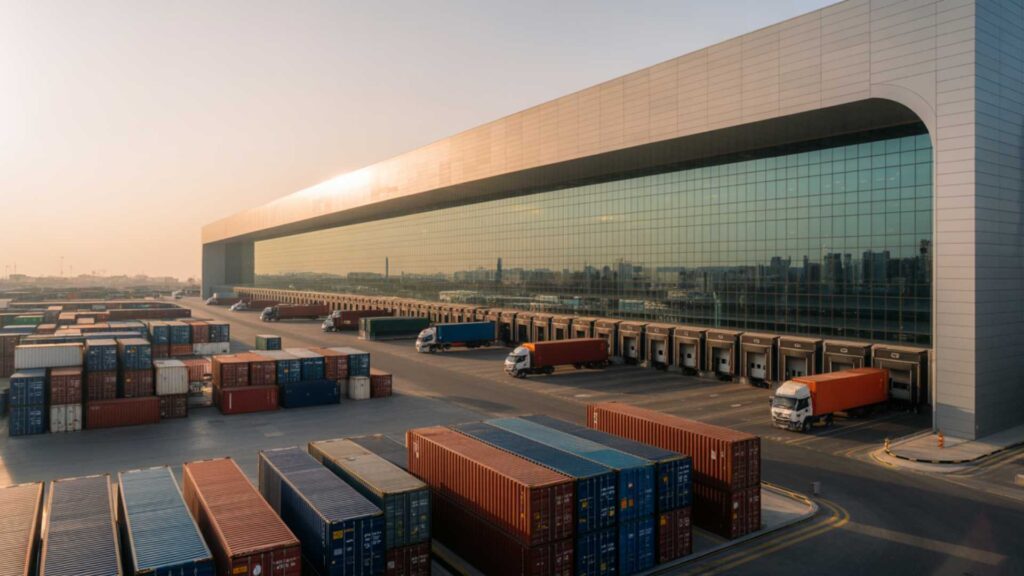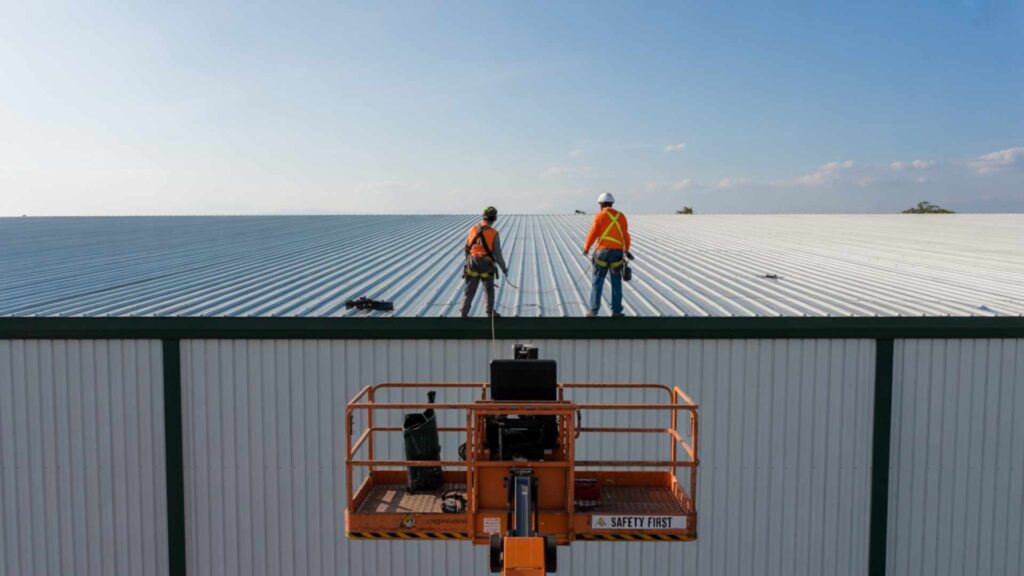Warehouse is more than storage. It is a critical foundation of modern trade, logistics, and retail. In the UAE, where global supply chains intersect and consumer demand is growing rapidly, efficient warehouses play a major role in ensuring goods are stored safely, tracked accurately, and delivered on time.
Many still confuse the term “warehouse” with “godown,” but the two are very different in function and scale. Here’s a closer look.
Table of Contents
What is a Warehouse?
A warehouse is a purpose-built facility designed for the systematic storage, handling, and distribution of goods. Unlike simple storage spaces, warehouses incorporate infrastructure, technology, and safety systems that protect inventory and streamline supply chain operations.
Modern warehouses in the UAE often feature:
- Climate-controlled zones for pharmaceuticals, food, and other sensitive goods.
- High-density racking systems to maximize floor space.
- Digital inventory tools such as barcoding and RFID for real-time tracking.
- Comprehensive safety systems, including fire suppression, humidity controls, and pest management.
Benefits of Warehouses
Well-designed warehouses deliver several advantages to businesses:
- Efficient Storage Management – Organizes goods systematically to reduce loss, damage, or misplacement.
- Faster Distribution – Streamlines order fulfillment and last-mile delivery.
- Cost Optimization – Reduces the need for frequent shipments by allowing bulk storage.
- Safety and Compliance – Meets fire, hygiene, and regulatory standards critical in the UAE.
- Business Scalability – Supports expansion by accommodating seasonal and fluctuating inventory volumes.
Difference Between Godown and Warehouse
In many regions, the terms godown and warehouse are used interchangeably, but they are not the same.
Feature | Godown | Warehouse |
Purpose | Simple storage space | Organized storage & distribution hub |
Infrastructure | Basic, minimal facilities | Equipped with racks, climate control, safety measures |
Technology | Usually none | Inventory software, barcoding, RFID |
Regulations | Informal or semi-formal | Fully compliant with trade & logistics regulations |
Best for | Small traders, local storage | Enterprises, logistics, e-commerce, manufacturing |
Common Usages of Warehouses
Warehouses in the UAE are not limited to storing goods; they serve strategic roles across industries:
- E-commerce Fulfillment – Companies like Amazon and Noon rely on large warehouses for order picking and same-day deliveries.
- Retail and FMCG – Supermarkets and distributors use warehouses to keep shelves stocked without shortages.
- Manufacturing – Factories store raw materials and finished goods before shipment.
- Logistics and Shipping – Dubai’s ports integrate bonded warehouses for import-export handling.
- Cold Storage – Warehouses with temperature control store perishable goods like food, flowers, and medicines.
Why Efficient Warehousing Matters in the UAE
The UAE’s position as a regional trade hub makes warehousing a core part of business success. With rising demands in retail, logistics, and e-commerce, companies cannot treat warehouses as simple storage areas; they must function as supply chain enablers that improve efficiency, reduce costs, and support business growth.
At Durra Altaj, we design and construct industrial warehouses and storage facilities that meet the highest standards of safety, compliance, and scalability. Our solutions are built to help businesses thrive in one of the most competitive markets in the world.
📞 Ready to build or upgrade your warehouse?
Talk to Durra Altaj today for a consultation on tailored, cost-effective, and future-ready warehouse solutions in the UAE.
Frequently Asked Questions (FAQ) on Warehouses
What is the main purpose of a warehouse?
A warehouse is designed to store, protect, and manage goods systematically until they are needed for distribution or sale. It ensures products remain safe, organized, and ready for timely dispatch.
How is a warehouse different from a godown?
A godown is usually a basic storage space with minimal facilities. A warehouse, on the other hand, is a modern facility with racking systems, climate control, safety measures, and inventory management technology, making it suitable for large-scale businesses.
What types of goods require specialized warehouses?
Perishable products like food, flowers, and medicines require cold storage. Sensitive items like electronics and pharmaceuticals need climate-controlled zones, while high-value goods demand secure warehouses with advanced safety systems.
Why are warehouses important in the UAE?
The UAE acts as a global trade hub, connecting Asia, Europe, and Africa. Efficient warehouses support e-commerce, logistics, and manufacturing industries by enabling faster distribution, regulatory compliance, and cost-effective storage.
What technology is commonly used in modern warehouses?
Modern warehouses use barcoding, RFID, warehouse management systems (WMS), and automation tools like robotic picking systems to improve accuracy, reduce manual errors, and speed up order fulfillment.
Can small businesses benefit from warehouses in the UAE?
Yes. Warehouses help small and medium businesses manage seasonal inventory, reduce stockouts, and ensure timely delivery. Shared warehousing or third-party logistics (3PL) providers also make it cost-effective for SMEs.
How do warehouses improve supply chain efficiency?
By centralizing storage, reducing transportation frequency, and streamlining order fulfillment, warehouses ensure products reach the market faster and at lower costs. They also provide real-time visibility into stock levels.
What are bonded warehouses, and how are they used in Dubai?
Bonded warehouses allow imported goods to be stored without paying customs duty until they are released for sale. In Dubai, they are commonly used for re-export and international trade.



